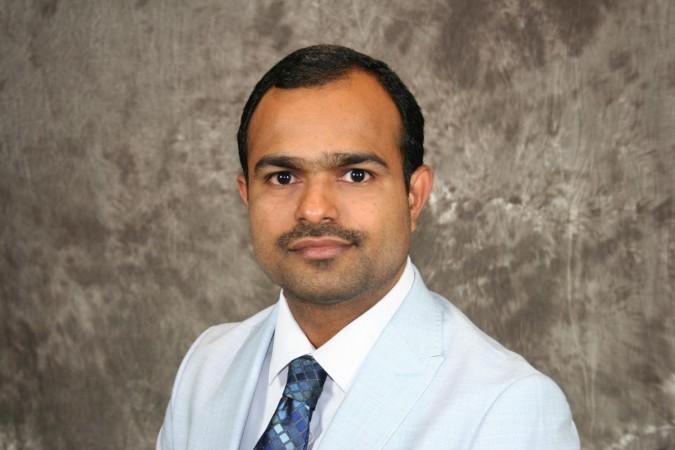
Sudarsan Kasireddy, an associate research scientist at Purdue University, reflects on the cancer research industry, stating, "Innovation involves finding new limits, pushing boundaries, questioning the status quo, and exploring uncharted territories."
Kasireddy's remarkable journey in the field of medicinal chemistry spans over 15 years, showcasing his commitment to bridging the gap between chemistry and biology in the pursuit of advanced cancer treatment strategies. With a strong foundation in synthetic organic chemistry, Kasireddy has carved a distinguished career path that has taken him from his early days as a trainee chemist at Suven Life Sciences Limited in Hyderabad to his current role as an associate research scientist at Purdue University.
His educational background is proof of his dedication and excellence in the field. He earned his Bachelor's degree from Osmania University, followed by a Master's in Organic Chemistry from SRTM University, Nanded. Driven by a passion for research, Kasireddy pursued his doctoral studies in Synthetic Organic Chemistry at the prestigious Indian Institute of Technology (IIT) Madras. During his Ph.D., he not only published six peer-reviewed research articles but also received numerous accolades, including the Sai Life Sciences-NOST Best Thesis Award and the Prof. C. N. Pillai Prize for Best Ph.D. Thesis.
The Role of Chemical Biology
Kasireddy's work involves chemical biology, which combines chemistry and biology to understand disease complexities. His research focuses on developing small molecule ligand conjugates to target cancer cells precisely while minimizing damage to healthy tissue.
"I designed small molecule ligand conjugates that selectively deliver to diseased cells without harming healthy cells," Kasireddy explains. "I used these compounds in identifying precise disease locations and affordable treatment options."
This shift in cancer treatment from broad-spectrum therapies to targeted interventions represents precision. Kasireddy's work in chemical biology contributes to developing practical, personalized, and affordable cancer therapies.
Synthetic Medicinal Chemistry Contributions
This researcher's prowess in synthetic medicinal chemistry is central to his work. His training in organic, medicinal, and chemical biology has enabled him to understand drug targets and mechanisms, allowing him to design and develop novel therapeutic agents.
"As a synthetic medicinal chemist, I have contributed to multiple diseases such as cancer and inflammatory disease areas," Kasireddy notes. "Currently, I work as an associate research scientist at Purdue University, focusing on discovering affordable immunotherapy treatment options against malignant diseases like cancer."
His research exemplifies his work on ligand-targeted oligonucleotides, including microRNAs and ASOs for cancer gene regulation. Kasireddy aims to advance cancer treatment possibilities by crafting these molecules and assessing their properties.
Translating Research to Clinical Applications
Kasireddy's research is rooted in chemistry and biology principles, but his goal is to translate discoveries into patient benefits. His collaborations with biopharmaceutical companies such as Umoja Biopharma and AusperBio highlight his work's translational potential.
"I gear my effort toward utilizing chemical derivatization and forward genetic approaches to study compounds that selectively target genes responsible for disease progression," Kasireddy explains. "We then optimize promising agents for patient administration via dose-response and safety testing in animal models."
He combines basic research with clinical application, accelerating the development of novel cancer therapies. One of Kasireddy's research at Purdue University has contributed to the development of targeted microRNA therapy that effectively slows cancer tumor growth. In collaboration with a team led by Andrea Kasinski, Kasireddy played a key role in designing and testing a fully modified version of miR-34a, a molecule that acts as a brake on cell division. The therapy selectively targets cancer cells that overexpress folate receptors, such as those found in breast, lung, ovarian, and cervical cancers by attaching this modified miR-34a to a folate molecule. This strategy inhibits tumor growth and suppresses the activity of genes known to drive cancer and resistance to other therapies, offering a promising new avenue for treating drug-resistant cancers.
The Future of Cancer Research
Kasireddy's work contributes to the evolving field of cancer research. In 2022, the U.S. spent an estimated $885.6 billion on research and development, a 12% increase from the previous year, setting the stage for advancements in cancer treatment.
He remains optimistic, stating, "Science is constantly evolving. As we continue to unravel the complexities of cancer, I believe we will find ways to make these inventive therapies more accessible and affordable for all."
Kasireddy demonstrates the potential for research, collaboration, and dedication in advancing cancer treatment. With researchers like him leading the way, the future of cancer treatment holds promise.

















